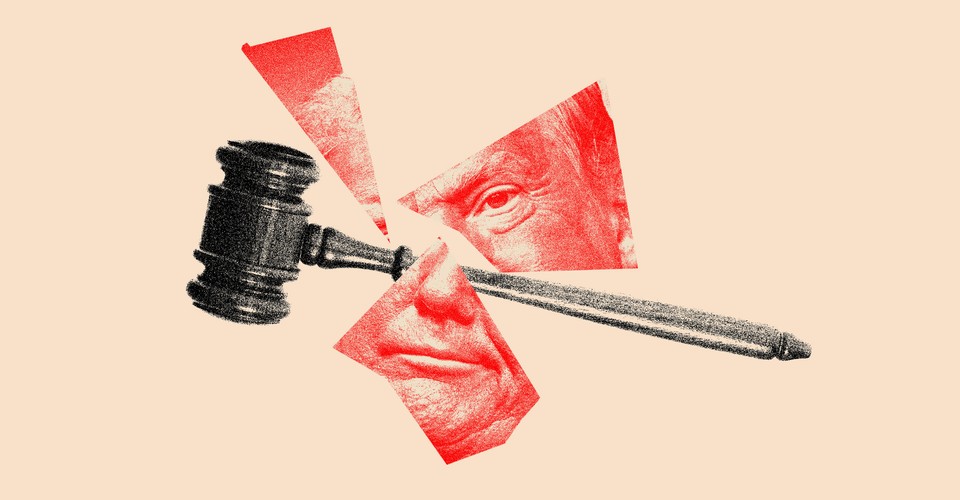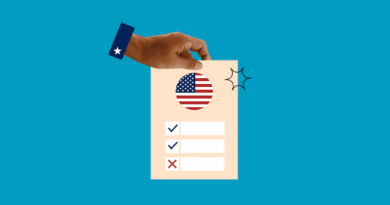Trump’s ‘Kraken’ Lawyers Got What Was Coming

The lawyers who battled for President Donald Trump in the days after the 2020 election are now fighting to salvage their professional careers—a fight they pretty much invited by openly flouting many of the core ethical precepts to which licensed attorneys are bound. Last November, we warned these lawyers that this could happen. Today, they face punishing financial and professional consequences, including the potential loss of their license to practice law. This is exactly what should happen.
On Wednesday, in a 110-page opinion that will likely serve as required reading in future law-school ethics classes, U.S. District Court Judge Linda Parker delivered her comprehensive sanctions ruling against Sidney Powell and her merry band of “Kraken” lawyers. The ruling addressed in clear terms the difference between “cable-news lawyering” and the actual practice of law. “While there are many arenas—including print, television, and social media—where protestations, conjecture, and speculation may be advanced,” Parker wrote, “such expressions are neither permitted nor welcomed in a court of law.” Her ruling outlined how Powell’s team had relied upon affidavits riddled with baseless speculation and accusations contradicted by existing public evidence to advance their claims seeking extraordinary relief that would have effectively nullified the votes of millions of Americans in Michigan. As Parker wrote, “this case was never about fraud—it was about undermining the People’s faith in our democracy and debasing the judicial process to do so.”
The election was not stolen. There was not widespread fraud. You do not have to take our word for it. Look at the countless lawsuits littering dockets across the nation brought by Trump and his allies. They all failed in the end. Taxpayers were required to foot the bill for multiple recounts, and still the election results stood, including in those done by Republican state election officials. Notwithstanding a last-ditch attempt on January 6 to hold on to his seat in the Oval Office, an effort that truly tested the mettle of our democracy, on January 20, 2021, Trump was no longer the president of the United States.
Trump himself has yet to suffer any legal consequences. This is not entirely unusual for him. It was Michael Cohen, not Trump, who got into trouble for the Stormy Daniels payoff. Trump does not do his own dirty work: He outsources it, usually to his lawyers. Trump is also not bound by any ethical obligations or requirements: He can espouse whatever comes to his mind and push for it however far he wants.
But Trump’s ability to evade liability (for now) does not extend to his lawyers, particularly in a court of law.
For example, Rudy Giuliani, once known as “America’s mayor,” has had his law license suspended in New York and the District of Columbia, directly as a result of his role in pushing Trump’s false election-fraud claims in the courtroom. Likewise, Judge Parker’s opinion is a clear and unequivocal rejection of the method by which Powell and her legal team pursued litigation in Michigan. On cable news and social media, you might get away with extreme exaggeration and hyperbole to claim that you have definitive proof of fraud, though, as evidenced by Parker’s opinion, what a lawyer tweets can come back to haunt him at a sanctions hearing.
In a courtroom, lawyers are ethically bound to do more than dump a far-fetched legal theory on a judge’s lap simply because it fits their (or their client’s) political narrative. You cannot file affidavits that contain materially false information, or that rely upon mere internet hearsay as a factual counter to the published data on issues such as voter turnout. You also cannot claim ignorance when signing election-fraud complaints supported by affidavits of which even a rudimentary review would have told you no laws were in fact violated.
Lawyers are given significant leeway and discretion in when and how they bring lawsuits, but they are expected—indeed required—to do basic due diligence prior to filing a complaint, such as reading the complaint before attaching your signature to it, verifying the factual allegations in the supporting affidavits, or identifying whether any applicable laws might have actually been violated. Parker’s ruling outlines how Powell and members of her team failed to do these things, and instead exploited the imprimatur of legitimacy afforded to them as officers of the court to broadcast a reckless political fantasy that arguably contributed to the events of January 6. Those lawyers now must pay significant legal bills as a form of restitution, complete legal-education retraining, and, perhaps most important, face potential disbarment by the states in which they are licensed to practice.
That’s the cost of masquerading conspiracy theories as serious legal claims, and that is as it should be. As has been made clear since last November, courthouses—and the fundamental rules of procedure upholding their marbled corridors—can form the final line of defense between our hallowed democratic ideals and those who would see them destroyed in favor of one of the most dangerous attempts at a power grab in this nation’s history.


